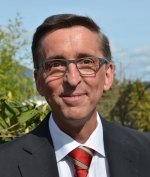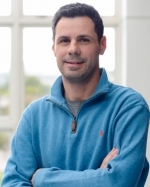| Wednesday, November 13, 2019 | |
Smart Manufacturing I (software-centric) |
|
| 11:30 | Why is everyone talking about scheduling their fabs? |
John R Behnke, General Manager Final Phase Systems, Inficon Why is everyone talking about scheduling their fabs?
 Abstract Biography |
|
| 11:50 | Horizontal Communication (HC) and Mount Assembler Smart Hookup (SMASH) |
| Fumiyasu Ohbuchi, SIEMENS | |
| 12:10 | 5G for industrial Applications |
Karin Loidl, Fraunhofer-Institut für Integrierte Schaltungen IIS 5G for industrial Applications
 Abstract Biography |
|
| 12:30 | Democratizing AI to accelerate the journey towards smart manufacturing |
Ingo Kobusch, Industry Consultant, IBM Global Electronics Center of Competence, Ibm Services Democratizing AI to accelerate the journey towards smart manufacturing
 Abstract Biography |
|
| 12:50 | Long way to visibility - IoT as enabler for full transparency along the supply chain |
Florian Kemmerling, DBschenker Long way to visibility - IoT as enabler for full transparency along the supply chain
 Abstract Biography |
|
| 13:10 | Cyber-Physical Human-in-the-Loop Systems for manufacturing: exploring the border between learning and control |
Giovanni Russo, Lecturer in Cyber-Physical Systems, University College Dublin Cyber-Physical Human-in-the-Loop Systems for manufacturing: exploring the border between learning and control
 Abstract Biography |
|
| 13:30 | End |